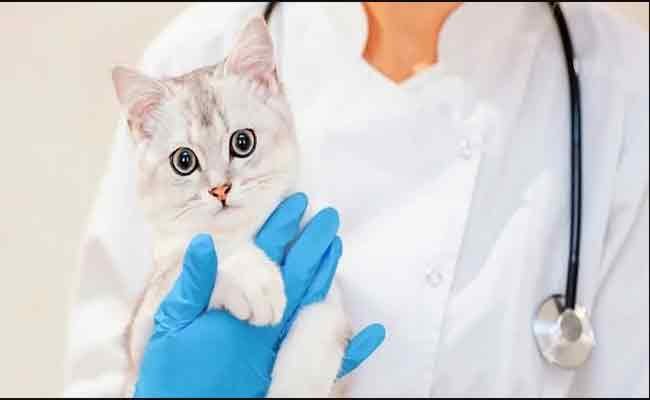
Sbxhrl How Can I Make Mother’s Day Special With Sbxhrl? 2023
April 2, 2022
Retro Bowl Wtf Games 2023 What Is Retro Bowl Unblocked Wtf?
May 22, 2022How Often Do You Take A Cat To The Vet? 2023 is our today’s topic. It stands to reason that all cats need regular exams to be healthy. But, some individuals are unsure how they must take their cats to the clinic. Many people believe that cats do not need quite as much vet care as dogs. They believe cats are ego enough to care for themselves and do not need it. You bring them in for a check until they show obvious indications of illness. In actuality, you should bring your cat to the veterinarian far more.
How Often Do You Take A Cat To The Vet In 2023

Kittens Baby:
If you have recently acquired a new newborn cat or kittens, arrange an appointment as soon as possible. This initial consultation will let you meet with a trained veterinarian to discuss future care plans. If your cat is less than 4 months old, the vet may prescribe monthly checkups until he or she is around five months old.
Kittens Up To The Age Of 12 Months:
If your cat is just under a year old, we recommend sending them to the veterinarian once a month. With their first visit taking place when they are about 8 weeks old.
Kittens require many rounds of vaccines throughout their first year to keep them from prevalent pathogens and illnesses. Kittens should get the Feline Leukemia vaccination as well as the FVRCP vaccine. Which protects your feline buddy from three extremely infectious and sometimes fatal feline diseases. Feline Viral Rhinotracheitis (FHV-1), Feline Calicivirus (FCV), and Cats Panleukopenia (FPL).
These immunizations will be given to your cat over a period of around 15 days. And will go a long way in keeping them healthy for the rest of their life.
The exact date of your cat’s vaccines will vary based on your area and your cat’s overall health.
Our veterinarians suggest getting your kitten spayed between both the ages of 5 and 6 months to avoid this. A variety of illnesses and unpleasant habits, as well as an unwanted litter of kittens.
Adult Cats:
You should get your adult cat examined at least twice a year, or every six months. Checkups often include dental washing, examinations, and vaccines. But if your cat lives inside, he or she will need distemper and rabies vaccinations. These injections are valid for around three years. But don’t worry if you lose track—a qualified vet can always test their immunity requirements. To ensure they get the best therapy possible.
Adult Cats Over The Age Of Ten:
If you have an adult human cat between the ages of one and ten, we recommend bringing them in every year for a checkup. These are yearly physical checks performed when your cat looks to be totally healthy.
During your adult cat’s standard inspection, your veterinarian will do a head-to-tail examination to look for early symptoms of disease or other problems. Such as dental decay, joint discomfort, or parasites.
Your veterinarian will also provide any necessary immunizations or booster doses, discuss with you. About your cat’s food and nutritional needs, and prescribe parasite prevention items.
If your veterinarian discovers any indicators of emerging health problems. He or she will explain their research to you and prescribe the next measures.
Older Cats:
When your cat reaches the age of seven, your veterinarian will most likely advise you to change their care routine. Cats between the ages of 7 and 10 should see a veterinarian twice a year. Add an extra visit once they reach the age of ten. Arthritis, obesity, and renal and liver disorders are all common illnesses. That need a complete treatment approach.
Senior Cats In The Family:
Cats are considered senior Cat when they reach the age of 11.
We recommend sending your senior cat to the vet every 6 months. Because many cat ailments and injuries are more frequent in older cats. All of the exams and suggestions stated above will be included in your elder cat’s twice-yearly fitness check-ups. Along with a few more diagnostic tests to give further insight into your kitty’s general health.
Blood tests and urinalysis are two diagnostic procedures. We prescribe for our older patients to look for early indicators of illnesses.
As age-related concerns such as joint discomfort grow more widespread. Elder care for cats involves a more constructive attitude to keeping your feline companion satisfied. If you have a mature cat, inquire with your veterinarian. About how you should take your kitten in for a routine exam.
Please keep in mind that the material in this page is for education. Purposes only and does not represent medical advice for pets. Please schedule an appointment with your veterinarian for an official diagnosis of your pet’s illness.
Making Provisions For Changes:
If you are relocating or expect a much change in your cat’s lifestyle soon. You should call your vet to determine if there is anything your cat may need. For example, if you are relocating to a location where there will be more exposure to the elements. They may require more vaccinations. Whether you’ve just relocated with your cat and find they’re acting . A post-move exam will assist in determining whether they’re nervous or if they’re unwell.
Feline Medical Facility is ready to offer the excellent care your four-legged pet deserves. If you are seeking a qualified medical center to take them to. Their specialized facility and caring staff of trained specialists are unrivaled. Hope you get your answers about How Often Do You Take A Cat To The Vet?
